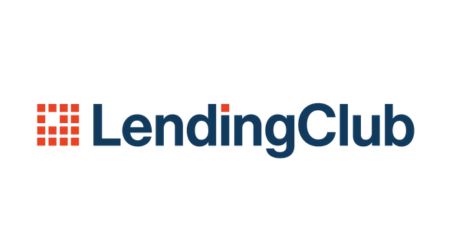
Business Loans
Get a farm loan: Agriculture financing and beginning farmer loans
Explore farm loan options in our detailed guide to loans, grants and government funding for agribusinesses.
Anna Serio was a lead editor at Finder, specializing in consumer and business financing. A trusted lending expert and former certified commercial loan officer, Anna's written and edited more than 1,000 articles on Finder to help Americans strengthen their financial literacy. Her expertise and analysis on personal, student, business and car loans has been featured in publications like Business Insider, CNBC and Nasdaq, and has appeared on NBC and KADN. Anna holds an MA in Middle Eastern studies from the American University of Beirut and a BA in Creative Writing from Macaulay Honors College at Hunter College, CUNY.
We asked Anna to flex her expertise by answering a few questions about how COVID-19 has changed personal and business lending.
First and foremost, rising interest rates means that you’ll pay more in interest and fees across the board. Personal and business loans are tied directly to the federal funds rate, so lenders will increase their rates within a few weeks of another rate increase announcement. However, certain loan amounts may be affected more than others, especially for consumers. When rates are low and the economy is stable, lenders often offer the lowest rates to the highest amounts available But when the economy is unstable, lenders may actually charge higher rates for larger loan amounts. There’s just too much of a risk that the borrower will default, which would be a big loss for the lender on those high-dollar loans. It’s also a lot more difficult to get a loan when rates are high. Lenders typically don’t charge more than 36% APR on personal loans, which is the legal limit in most states. So there’s only so much lenders can do to raise rates before a bad credit borrower simply isn’t worth the risk. Business and consumer lenders are raising credit score requirements and are scrutinizing income a lot more closely. If you have a credit score under 670 — what many lenders consider to be the minimum for good credit — you might want to consider other options.
Contacting your lender as soon as your financial situation changes is important, especially if you’ve lost income. Like with every relationship, communication is key. The sooner you let your lender know that you might miss a payment, the more flexible they will be. Many offer forbearance programs for about three months. And if you need to adjust your payments long-term you can also negotiate a longer repayment period to lower your monthly cost. But avoid using forbearance until you’re sure you’ll miss a payment. Interest continues to accrue during forbearance and many lenders add this to your loan once repayments start. So not only will you owe more, you’ll also be paying interest on a higher loan amount which leads to higher monthly payments. Lengthening your term will also increase the total cost of your loan, but it’s less costly than forbearance. Most consumer lenders allow you to make extra payments at no cost, so you can still pay off your loan ahead of time once you find another job (or source of income).
A personal loan can be if you have a big one-time expense that you can’t pay upfront — like say you’re the maid of honor in a wedding in Hawaii but you can’t pay for the plane ticket and the hotel and the dress out of pocket. Personal loans have lower interest rates than credit cards and the monthly payments force you to pay it down within a few years. However, even in those situations, a personal loan might not be a great idea if you work in an industry that has been affected by layoffs, such as tech. That’s because the fixed monthly payments are much less flexible than the minimum payments a credit card company charges. If you lose your job and miss a payment it’ll go on your credit report and follow you around for as long as seven years. Personal loans also aren’t designed to cover small, recurring expenses. So if you’re living paycheck to paycheck, something like a cash advance app might be a better choice for expenses you can’t put on a credit card. These payday loan alternatives can front you up to around $500 per paycheck with no financing charge. But cash advance apps for when you find yourself regularly coming up short. Many apps require you to pay for a subscription to access the advance — along with a slew of other financial wellness services. Subscription fees typically run from $1 to $9 a month. It’s still cheaper than a payday loan, but not worth the cost of a one-time advance.



49 articles written by this author

Get a farm loan: Agriculture financing and beginning farmer loans
Explore farm loan options in our detailed guide to loans, grants and government funding for agribusinesses.

If you live in Canada, you can't get a loan through LendingClub. Explore these alternative providers instead.

Learn what to expect when you open a foreign bank account, what hurdles to overcome when using your Canadian bank account and other fees and limits to consider when living and working overseas.

Too busy to look for lenders on your own? Consider a business loan marketplace and get connected with multiple offers.

Compare $20,000 small business loans in Canada. Apply online and get your funds in 1 to 3 days.

Compare $250,000 business loans in Canada and calculate your monthly payments.

Why you might want to think twice before borrowing from your local bank or credit union.

Find out what an auto equity loan is, how it works and whether it's right for you. Learn how it's different from a title loan.

Learn about 5 common debt collector scams, how to spot them and what to do if you're a victim.

Learn the details about what happens to a car loan or lease when the owner dies.
Finder.com is an independent comparison platform and information service that aims to provide you with the tools you need to make better decisions. While we are independent, the offers that appear on this site are from companies from which Finder receives compensation. We may receive compensation from our partners for placement of their products or services. We may also receive compensation if you click on certain links posted on our site. While compensation arrangements may affect the order, position or placement of product information, it doesn't influence our assessment of those products. Please don't interpret the order in which products appear on our Site as any endorsement or recommendation from us. Finder compares a wide range of products, providers and services but we don't provide information on all available products, providers or services. Please appreciate that there may be other options available to you than the products, providers or services covered by our service.
We update our data regularly, but information can change between updates. Confirm details with the provider you're interested in before making a decision.
How likely would you be to recommend Finder to a friend or colleague?
Our goal is to create the best possible product, and your thoughts, ideas and suggestions play a major role in helping us identify opportunities to improve.